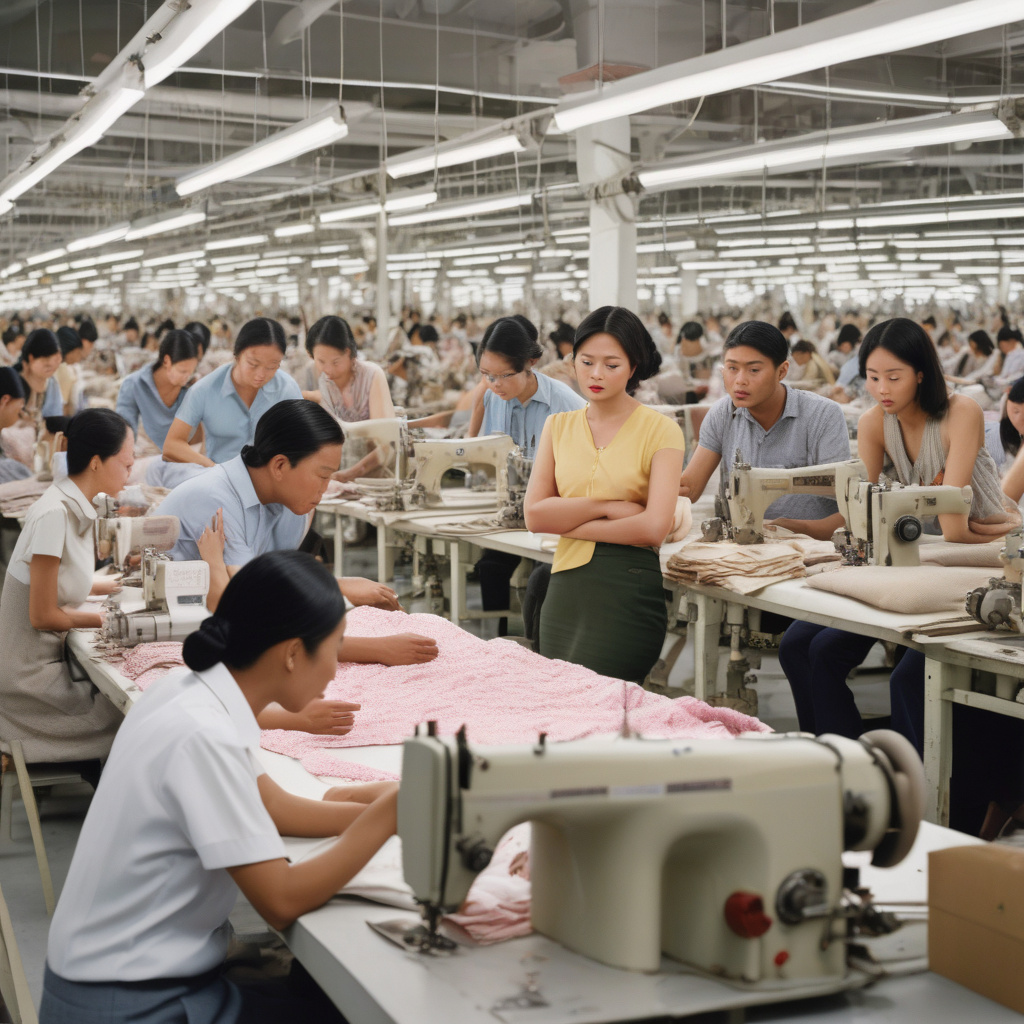Tariff Turmoil Hits Vulnerable Fashion Manufacturers in Southeast Asia
The global fashion industry is currently facing a significant challenge as ‘reciprocal’ US tariffs loom over manufacturers in Southeast Asia. Countries like Vietnam, Cambodia, and Indonesia, which have long been hubs for fashion production, are now feeling the pressure as these tariffs threaten the profitability of larger suppliers and the very viability of smaller manufacturers.
The impact of these tariffs is already being felt across the region, with some factories experiencing cancelled orders and having to resort to worker layoffs. This not only affects the businesses themselves but also has a ripple effect on the local communities and economies that depend on the fashion industry for employment and revenue.
Vietnam, known for its growing garment industry, is particularly vulnerable to the tariff turmoil. The country has seen a rise in foreign investment in recent years, with many international fashion brands choosing to manufacture their products there. However, with the threat of tariffs looming, these brands are now reconsidering their production strategies, which could have a detrimental effect on the Vietnamese economy.
Similarly, Cambodia and Indonesia, which also rely heavily on the garment industry, are facing an uncertain future as they navigate the challenges posed by the potential tariffs. Smaller manufacturers in these countries, already operating on thin profit margins, are at risk of being pushed out of the market altogether if the tariffs come into effect.
In response to this crisis, industry leaders and policymakers in Southeast Asia are calling for solutions to protect the region’s fashion manufacturers. One proposed strategy is to diversify into new markets beyond the US to reduce dependence on a single market. By expanding their reach to Europe, Asia, and other regions, manufacturers can mitigate the impact of potential tariffs and ensure a more stable future for their businesses.
Another approach is to focus on innovation and sustainability within the fashion industry. By investing in technology, sustainable practices, and ethical production methods, manufacturers in Southeast Asia can differentiate themselves in the global market and attract consumers who are increasingly conscious of the environmental and social impact of their purchases.
Ultimately, the tariff turmoil facing fashion manufacturers in Southeast Asia underscores the need for resilience and adaptability in the ever-changing global economy. By proactively addressing these challenges and embracing innovation, manufacturers can not only survive the current crisis but also thrive in the long run, ensuring a sustainable future for the industry and the communities it supports.
#FashionIndustry, #SoutheastAsia, #TariffTurmoil, #GlobalEconomy, #InnovationAndSustainability












